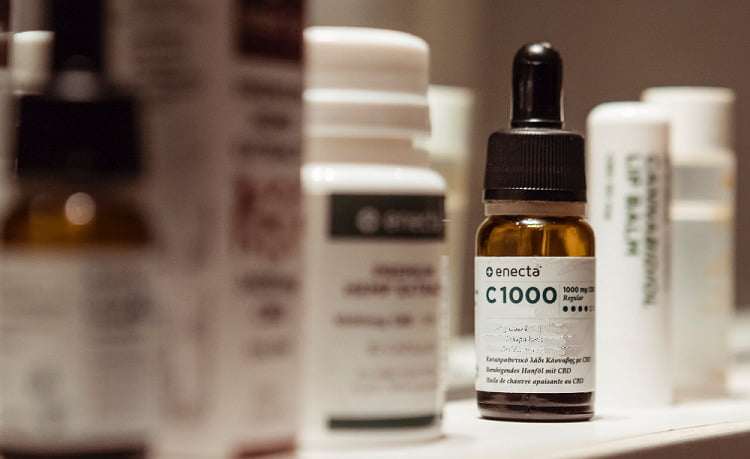There are two types of services people can access for drug or alcohol addiction treatment: inpatient care or outpatient care.
Outpatient treatment programmes suit mild addictions and are a less intensive, more flexible option, where you stay in your own home and travel to your outpatient facility for treatment for a few regular but short sessions of addiction treatment.
Intensive outpatient treatment for addiction can be anywhere from nine hours per week up to 21 hours per week, but how often you go and stay for is flexible. Your treatment process will depend on your personal needs.
At outpatient rehab for addiction, you don’t need to worry about sharing a space with others – you can can heal from alcoholism or substance abuse coming and going as you please.
Outpatient rehab may suit you more if you need to tend to work commitments, children and everyday duties.
Inpatient treatment is what’s typically viewed as “going to rehab”. This is when a person has a residential stay at a clinic for a length of time with 24/7 level of care from medical professionals.
The stay usually lasts anywhere from between five and twenty-eight days. Nowadays, with the increase in availability, patients very often go to a rehab near where they live.
Inpatient care is more appropriate for those with a severe addiction.
Should I go to rehab for addiction?

Living with an addiction brings with it many challenges. There are times life feels overwhelming and a person can feel helpless in terms of what to do. Throughout the UK, people are entering rehabilitation programmes.
The Office for National Statistics reported that:
- 52% of people in addiction treatment in the UK are being treated for opiate addiction
- 28% are being treated for alcohol, and accessing treatment for crack cocaine and ketamine use is on the rise.
- 47% of people who left addiction treatment were free of dependency.(1)
Treatment works for thousands of people from all walks of life. In order to have the highest chances of success, it’s useful to know about what options are available.
What is outpatient treatment?

Outpatient services are where people access a clinic or centre while living at home. Outpatient services tend to operate near to where the person lives and/or works.
The clinic will have a schedule of either daily or weekly activities, including group sessions, for people to access on their own terms. There are also drug and alcohol workers available for one-to-one sessions.
Outpatient services will either be privately funded or NHS funded, although the latter is much more difficult to access in terms of availability.
Sessions can last up to a year and involve group therapy and counselling, where you’ll learn your relapse triggers and techniques to cope with them.
Studies indicate that the longer you stay in outpatient treatment, the less likely you are to be hospitalised in future for addiction issues.(2)
What are the benefits of outpatient rehab?
There are a number of benefits that make outpatient services very effective for some of those seeking treatment.
Unlike inpatient care, outpatient programmes offer flexibility. A person is able to go to activities and support sessions as and when it fits in with their schedule. This can be very helpful where a person has a busy life, or if they have responsibilities in terms of work or having dependents.
Outpatient services are especially useful for those with mild substance misuse issues as well as for those who are abstinent.
Depending on the centre that is accessed, some outpatient options offer an excellent level of care and support. A conversation with OK Rehab can help you identify which services in your local area offer the type of service most suitable for your needs.
What’s missing from outpatient drug or alcohol treatment?

There are a few reasons outpatient services might not suit everyone. Contrary to inpatient care, outpatient services means that a person won’t get a break from their usual environment.
A break from where the person usually spends their time often makes it easier for a person to not use alcohol or drugs.
Environmental triggers can be very hard to manage.
A stay at inpatient treatment programs away from substances is highly efficient for many beginning their recovery.
Residential programs offer an immersive approach to treatment which isn’t available when staying at home. Having access to treatments and professional support throughout the day can really help with a person’s cravings and triggers at the start of rehabilitation.
Another point is that when a person stays at home, there is less opportunity to connect with others with similar goals.
When undergoing a rehabilitation programme, meeting others who are experiencing similar addiction issues can develop a very beneficial system of support and connection. This can make all the difference in terms of long-term abstinence.
Finally, taking part in an outpatient programme will mean treatments take longer to complete. This is because they work on a part-time basis.
What treatment programs are available on an outpatient rehab programme?

A rehabilitation programme includes various treatments. For a person to recover from drug and alcohol addiction, an all-encompassing approach is required. Both the physical and psychological aspects of the addiction need to be addressed.
Depending on the clinic accessed, there are different treatment options. Private clinics provide a high level of psychotherapeutic input. This is incredibly important when it comes to supporting a person towards a sober lifestyle in a sustainable way.
People are also invited to take part in 12 Step groups, alternative therapy groups (like art and music therapy) and mindfulness sessions. This work brings an excellent opportunity for connection and thinking outside of one’s own addiction experience.
Some centres also have holistic therapies such as equine therapy, yoga, massage, and ear acupuncture. OK Rehab can advise on what’s available at the rehab clinics nearest to your home.
Detox during outpatient treatment
As well as psychological treatments, people might be offered a detox option. This is usually for those who have physical dependencies.
There are, however, implications around trying to do a detox while remaining at home.
These include the following:
- An incredibly uncomfortable and sometimes painful withdrawal period
- Increased cravings
- Risk of dangerous seizures
- Hallucinations
- Needing supervision (you need at least two people you trust to look after you in “shifts”)
- Lack of professional medical attention around the clock
For those with physical dependencies on substances such as alcohol, heroin, or Xanax (alprazolam), a medically supervised detox is highly recommended.
This ensures a person’s safety, as you’ll need a good level of medical care to ensure you withdraw without dangerous complications. At its worst, detoxing from a physical dependence has the potential to lead to death.
Why is medication prescribed during detox from physical dependency?
Medication is prescribed during a detox period in order to make the symptoms of withdrawal as comfortable as possible.
Medications commonly used include:
These medications support the brain and body to function as the problem substances are leaving the body.
This helps to retain a chemical and hormonal balance so that withdrawal and detox are as stress-free and comfortable as possible.
Benefits of detox during a residential drug and alcohol rehab
A residential stay is arguably the safest possible way to detox. Onsite doctors and clinical nurses monitor symptoms and provide a high level of support and care.
Doctors also ensure that a detox occurs in a tapered way, reducing the amounts of the problem substance safely so that withdrawal symptoms are reduced. This helps a patient to manage their cravings, sleep more effectively and reduces panic and anxiety.
There is also the option for a person to access outpatient services, but to do the detox phase within a clinic or in an NHS hospital. Unfortunately, waiting times for NHS detoxes are very lengthy.
Private clinics, on the other hand, are usually able to offer a very quick turnover between referral and admission.
Where can I access an outpatient detox near me?
Speak to your GP about your addiction to see what NHS and private options are available in your area.
For more help and advice, contact the OK Rehab team today.
What else should I consider when choosing inpatient or outpatient addiction treatment?

Addiction treatment in the UK falls into two categories of services: inpatient or outpatient. Both have highly effective outputs.
It is essential, however, that a person is matched to a service that will suit their individual requirements in order for them to experience the highest level of success.
Outpatient services are very effective for those who benefit from a flexible approach to treatment. Although input is less intense (than inpatient services), this type of service can support many people to manage mild substance misuse and to maintain a life of recovery.
Whatever type of service chosen, a person with a physical dependency can access a safe medically supervised detox through inpatient clinics and this is highly recommended to minimise dangerous risks.
Therapy to supplement your outpatient care

Your recovery journey may benefit from also seeking therapy. Many people with addictions also have mental health disorders – known as ‘dual diagnosis’.
Therapies to consider are:
- Family therapy
- Behavioural therapies
- Individual therapies
You could also consider a 12-step programme, like:
- Alcoholics Anonymous
- Narcotics Anonymous
- Cocaine Anonymous
There are many other addiction charities can be accessed free of charge.
How can I find an outpatient drug and alcohol rehab near me?

To find out more about your local treatment options, contact the OK Rehab team today.
We can talk you through your options, and if you’re ready for rehab, we can refer you to one of the UK’s top facilities in your chosen area.









